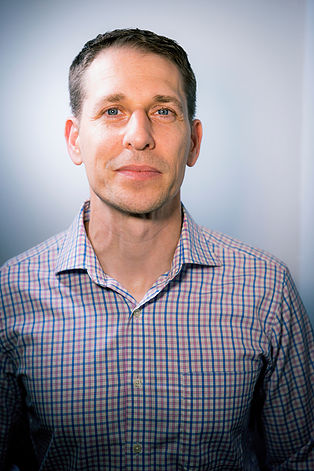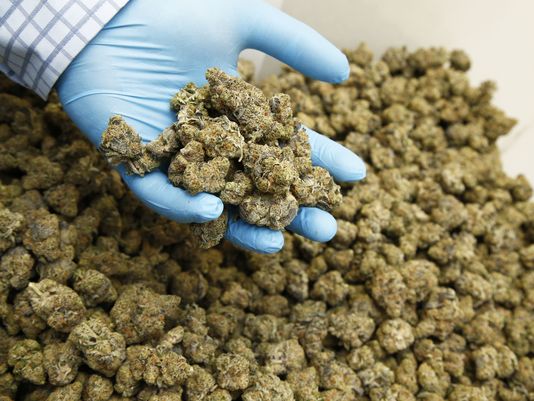» Editor's note: This story has been updated to reflect most recent statistics.
Environmental guardians and Wall Street investors seem like an odd couple. But both are about the long run. Each benefits from a changing landscape in climate awareness, personal values, and goals. And from 2014 to the start of 2020, investments in the U.S. considered socially responsible grew from $6.6 trillion to $17.1 trillion.
Also consider: U.S. assets using SRI strategies were $12 trillion at the start of 2018, expanding 42 percent to the start of last year. That $17.1 trillion in SRI represents a cool, hard, green 33 percent of total U.S. assets under professional management, according to the Forum for Sustainable and Responsible Investment.
“The first question I ask is, ‘Is the world better off because this company exists?’” said Jeff Siegel, a Generation X ecocapitalist who has thrived by investing in the mushrooming environmental sector.
Roughly 80 percent of Standard & Poor’s 500 companies now provide shareholders with "socially responsible investment" reports that also score corporate governing performance. In the 1990s, just a handful did, according to Barron’s, which in 2016 began ranking the top 200 SRI mutual funds for the first time.
"Policy and good deeds won't be enough to instigate the change we need to ensure future generations have access to clean water, air, and soil," said Siegel, an author and green stocks specialist who has appeared on Fox, CNBC, and Bloomberg. "We have to use the basic fundamentals of capitalism to make this work. People won't buy solar panels, electric cars and organic food just because it's good for the planet. Most people, anyway."
 Siegel's professional wheelhouse includes alternative energy, agriculture, transportation, and cannabis. Also on Siegel's list is socialist Cuba, not exactly an SRI darling because of repressive politics and the ongoing U.S. trade embargo. Despite angry critics, he says investing in the Forbidden Island to help Cubans "create wealth and provide jobs is a noble cause."
Siegel's professional wheelhouse includes alternative energy, agriculture, transportation, and cannabis. Also on Siegel's list is socialist Cuba, not exactly an SRI darling because of repressive politics and the ongoing U.S. trade embargo. Despite angry critics, he says investing in the Forbidden Island to help Cubans "create wealth and provide jobs is a noble cause."
“I like the idea of investing in organic agriculture and renewable energy projects in Cuba,” Siegel said.
Siegel, an editor for Wealth Daily, started to refine a contrarian investment strategy in the mid-90s at a financial publishing firm in Baltimore. He is the author and co-author of several books, including 2008’s Investing in Renewable Energy: Making Money on Green Chip Stocks.
Siegel, 49, shared some of his eco-investing philosophy with The Daily Fray:
● TDF: There are multiple interpretations of socially responsible investing. What’s yours?
It's all relative. It really depends on what an individual decides is aligned with his or her values. For me, it's pretty simple. Before I even look at a company as a possible investment, the first question I ask is, "Is the world better off because this company exists?" If the answer to that question is yes, then I move forward on the due diligence process.
● Do the markets care about politically correct issues?
Markets don't have the capacity to care about political correctness. Only people can respond one way or the other to this concept. Certainly, there have been situations in the past where a CEO or some kind of exec has said or done something deemed to be politically incorrect, and that has affected the company's value. Uber is good example of this. The company's former CEO said some things that a lot of people found offensive, and as a result, the company lost a lot of customers.
I can see how what some people may call "political correctness" could be a factor in choosing an investment. Although I don't really like to use the term political correctness. In other words, if the CEO of some company comes out and says some racist things, I'm not going to invest in that company because my desire to invest in socially responsible companies does not align with a company that would allow such a person to call the shots. But I wouldn't call that being politically correct. I would just call that not wanting to invest in a company run by a racist individual. It's not politically correct, it's just "correct."
 In a followup question, Siegel said:
In a followup question, Siegel said:
Politics will always influence the decisions investors make. I should clarify that even if a company looks fantastic, if I don't think it's a good investment, I won't make it. I've seen some really interesting companies doing fantastic things, but the risk was too high or the possibility of making money was too sketchy, so we didn't make the investment.
● Is marijuana an SRI? By some SRI definitions, for example, alcohol is a "sin stock."
Again, it's a matter of personal choice. For me, the prohibition of cannabis is a human rights violation. It has led to the incarceration of hundreds of thousands of people – mostly those of color. It has disallowed the right of sick folks to responsibly choose the medication that best works for them. How any person can look at a sick child with epilepsy or a vet with PTSD and say, "No, this person can't have his or her medicine," is beyond me.
The way I see it, anything that furthers the war on drugs is socially irresponsible, and anything that can help end the war on drugs is a socially responsible endeavor.
I would also add that from an economic standpoint, it is incredibly irresponsible to continue the prohibition of cannabis. Taxpayers have shelled out more than $1 trillion to fight this war on drugs. There is no honor or righteousness in taking the hard-earned money from hard-working folks and using that money to continue a war that was actually started as a war on the poor and people of color.
● Speaking of sin stocks, possibly like rum and cigars, is Florida's neighbor, Cuba, an emerging market or a no-go zone for SRI?
It really boils down to the investment. I actually like the idea of investing in organic agriculture and renewable energy projects in Cuba. Yes, the government will not allow for a fully functioning free market, and will always take the lion's share of profits. However, to have the opportunity to help these folks – most of whom have never known anything but poverty – build sustainable, ethical businesses that can help them create wealth and provide jobs is a noble cause.
 ● Millennials figure to benefit the most, long-term, from alternative energy’s future. Should a person's age factor into SRI for, let's say, solar and wind power?
● Millennials figure to benefit the most, long-term, from alternative energy’s future. Should a person's age factor into SRI for, let's say, solar and wind power?
I don't think age matters. If you're 70 years old, and you want to know that you're doing your part to ensure future generations have an opportunity to enjoy fair markets, clean air and water, and healthy food, then investing in things like solar and wind make sense. And, of course, these things have also served many socially responsible investors well. Many of the members of my investment community that took part in the renewable energy boom back in 2006 made a lot of money. They're doing the same thing today with cannabis.
That being said, millennials should be fully aware of where the world is heading in terms of energy. Renewable energy is the future. Make no mistake about that. Millennials attempting to invest in an antiquated energy economy, heavily weighted in fossil fuels, will ultimately lose money going forward.
● If you lived in Florida, what SRI sectors are worth looking at?
Definitely legal cannabis. Although many of Florida's politicians have dragged their feet on this, Florida could be one of the most lucrative legal cannabis markets in the U.S. because, bottom line, there are a lot of older folks who live in Florida and benefit from access to legal cannabis to help them with all kinds of aches, pains, and maladies.
I would also be looking for opportunities to invest in sustainable infrastructure projects that'll help ensure Floridians will still have plenty of fresh, unpolluted water twenty years from now. That's a big issue in the Sunshine State. And considering a future that will likely contain stronger, more destructive hurricanes, micro-grids are definitely going to become a hot ticket item in the coming years.
In a followup, Siegel said:
In terms of Florida, yes, the politicians have turned something very simple and very important into a circus. But the reality is, legalization is coming, so any actions or inaction made on the part of these politicians will only result in a short-term slowdown.
 5=Q&A appears periodically in The Daily Fray, spotlighting people, issues, places, and things. Comments: editor@thedailyfray.com.
5=Q&A appears periodically in The Daily Fray, spotlighting people, issues, places, and things. Comments: editor@thedailyfray.com.
Outside
Bitcoin mining emissions in China will hit 130 million tonnes by 2024 https://t.co/w6He7so8N2 pic.twitter.com/qYUDtBdeRK
— New Scientist (@newscientist) April 9, 2021
The Gunk Report
For the Blue-Green Algal Bloom Weekly Update from the Florida Department of Environmental Protection, tap here. For DEP's Algal Bloom Sampling Map, tap here.
What, me worry?
» "PLAYING WITH SHARKS," which recently premiered at the Sundance Film Festival, documents diving legend Valerie Taylor.